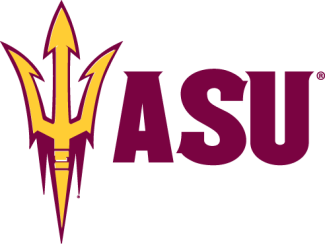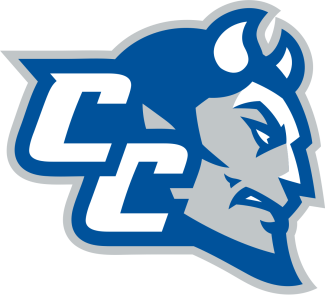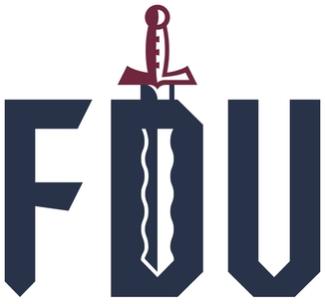How has preparation gone for the tournament?
“It’s going really well. We’re keeping busy. We’re looking at it as just another lacrosse tournament. There’s a lot more cameras, but it’s just another lacrosse tournament. We have a lot of experience with that. Howie [Borkan, the former chair of the U.S. men’s national program who’s on the Israel Lacrosse board of directors] has a lot of experience. I have a lot of experience with it. We know what we’re doing. It’s a big undertaking, it’s unwieldy because there’s so many teams but everything is just one foot in front of the other. We’ve got a lot people that good at their jobs, who have done this before in Israel. We have an event production company that’s clicking on all cylinders. I’m confident in my team. We’re going to put on a first-class event. We’re going to raise the bar.”
What are facilities like and what’s the setup for teams and fans?
“There’s two main playing venues. Opening and closing at are at Netanya Stadium, which is like an MLS stadium, a first-class, 14-000 seat stadium. It’s seven or eight years old. It’s gorgeous. We have the opening night doubleheader there and the gold medal game there.
“The bulk of the tournament is going to be at Wingate Institute, which is the sports college of our country. We have all six competition fields in one location. It’ll be a festival atmosphere, having everybody together. You can bounce from game to game. There’s always five or six games going on. That’s the headquarters for the event. There’s a big expo with vendors, a beer garden with big-screen TVs set up. It’s going to be a cool set up.
“As far as where the teams are staying, that was a challenge for us because the colleges here don’t empty out for summer. People stay in their dorms generally. We have 300 beds on campus, all the referees and four teams are on campus. But the bulk of teams are off-site in hotels up and down the Netanya beach.
“We booked every hotel room in the city. There’s so many hotels in Netanya that we were able to get all the teams in, with lot of options as far as costs. The city of Netanya is awesome. It’s a beach-front campus. All hotels are close together. Although you won’t have that college campus where all teams are staying in the traditional sense in Denver or in Manchester in 2010, we will have that sense of community.
“From the furthest hotel to the closest hotel, you can walk it. There’s a big open square on right on the beach that we’re going to take over as a lacrosse community. The games are going to be on the Jumbotron in the city square.”
When you heard that the original 2018 host, Manchester, England, might be pulling out, how long did it take you to put a plan together to host the games?
“It took about five minutes to make the decision we wanted to go for it. Our board of Mark Greenberg [a National Lacrosse Hall of Famer and former Team USA and Johns Hopkins defenseman], Howie, and Bill Beroza we all spoke and everybody was like, ‘We have to go for this.’ We didn’t think we get it. But if we can get it, it would be amazing for us, and for our organization and for the sport in our country. We knew there was a U.S. bid on the table already with Delaware. They were going to be able to come out with pretty competitive dorm prices and a really buttoned-up bid.
“With Manchester withdrawing, I think the FIL probably wanted something safe. OK, Delaware, you know it’s going to be run professionally. The fields are all in one place, the dorms are all in one place. It’s probably not the most inspiring place in the world to have a world championship, but you know it’s going to click and it’s not risky. We didn’t think we’d stand a chance.
“We had five options where we could go in Israel, and we narrowed it down to two. We had about nine days to meet deadline. By the time we heard there was an opportunity to bid, we had our bid on the table in nine days. It was a lot of exploring and talking to hotels and finding what prices we could guarantee. About a week after that, we got the good news. It’s been a lot of hard work since then, but one foot in front in the other.
“One of the big reasons we won was that it was just in U.S. in 2014. The second reason was the beach front, it’s inspiring. It’s truly an inspiring place to have the games and the opportunity for everybody to experience something new in a new culture is exciting. I think the FIL recognized, we can’t just have this in four countries and rotate. It’s time to break out of that.
“One of the other big reasons is 29 of the 46 countries are coming from Europe. To tell the membership, ‘Hey, it’s not in Manchester, now it’s in Delaware,’ think about the added expense collectively. If you’re the Czech Republic or Slovakia, you’re planning on budgeting a flight to Manchester for $200 a head now, and now it’s $1,400-$1,500, versus Tel Aviv, it’s still be the same $200-$300. It’s a palatable shift in venue versus, ‘Wow, I didn’t expect an extra $1,200 per person times 35 people,’ and then we’re having that conversation 30 times.
“The collective saving in the lacrosse community is hundreds of thousands of dollars and that’s part of why we won.”
Have you heard a lot from people about security concerns?
“We’ve heard concerns, but it hasn’t been as loud. We know everybody is coming. We have 46 teams coming. I wonder if we’re going to have less fan support in general, because of people’s perceptions of the country and what they see on the news.
“But that’s also one of the great things about this event. We know at a minimum we have 2,000 players, coaches and staff coming. We think from all indications from ticket sales and hotels, we’re going to hit our projections as far as getting 5,000-6,000 people from abroad for this event. It sounds like they’re coming. With that, we get to break those perceptions.
“It’s funny, I was interviewing Team England when they toured Jerusalem in April. They did a five-game friendly tour against us. I asked, ‘What was your perception of Israel before you came here and what is it now?’ They laughed. ‘I thought it was all deserts and guys wearing suicide vests and camo. It’s not.’ I asked, ‘Do you feel safe here?’ ‘Of course we feel safe here.’ [Click here for full video.]
“That’s the crazy part. If this was in Manchester, nobody would be questioning safety and security. But look at what happened in Manchester last year. If this was in France, nobody would be questioning safety and security. If this was Las Vegas or Orlando, nobody would be questioning safety and security, but because it’s in Israel and there’s this perception of Israel that’s driven by the media, people are asking us questions.
“In reality, we’re probably the safest country in the world. We know how to deal with the challenges that are on borders. So this is an opportunity to combat that perception, because once you come to Israel, you don’t think that anymore.”
For more information about Israel Lacrosse, visit israellacrosse.com. And for more about the 2018 FIL World Lacrosse Championship, visit worldlacrosse2018.com.


























































